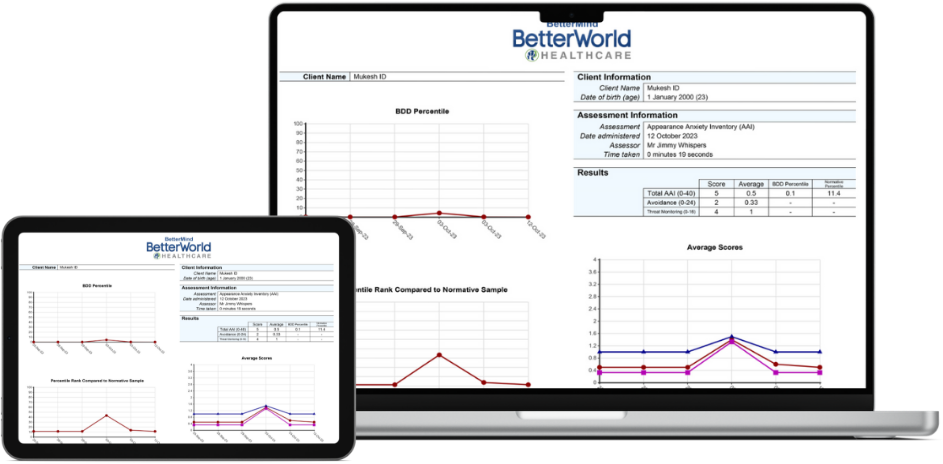Center for Epidemiologic Studies Depression Scale – Revised (CESD-R)
Assessments
Description
The Center for Epidemiologic Studies Depression Scale (CESD-R) is a 20 item self-report questionnaire used to measure symptoms of depression, and is particularly useful for tracking symptoms over time. It taps into nine different symptom groups of Major Depressive Disorder as defined by the American Psychiatric Association Diagnostic and Statistical Manual, fifth edition.
These symptom groups are:
1 – Sadness (dysphoria)
2 – Loss of Interest (anhedonia)
3 – Appetite
4 – Sleep
5 – Thinking / concentration
6 – Guilt (worthlessness)
7 – Tired (fatigue)
8 – Movement (agitation)
9 – Suicidal ideation
When used in conjunction with DSM-V criteria and clinical judgment this scale can be used to inform diagnosis of Major Depressive Disorder.
Validity
Van Dam and Earleywine (2011) validated the CESD-R on a large community same (N = 7389, mean age = 30.2, SD = 12.1). Factor analysis showed one factor and that the scale had good internal consistency and psychometric properties. In their community sample total score range of 0 to 77 (M = 10.3, S.D. = 11.7). The distribution of CESD-R scores had a large positive skew, meaning that percentiles derived from this data should be treated with caution. They also evaluated the scale with an undergraduate student sample (mean age 19.5 (SD=1.8), showing a higher mean of 16.4 (SD = 13.5).
Interpretation
Scores are presented as total raw scores as well and two percentiles, one based on a community sample of adults and the other based on a student sample (mean age = 19.5). High scores indicate more symptoms of depression. Further interpretation of individual responses can be done in light of the symptoms clusters of Major Depressive Disorder.
1 – Sadness (Dysphoria): Questions 2, 4, 6
2 – Loss of Interest (Anhedonia): Questions 8, 10
3 – Appetite: Questions 1, 18
4 – Sleep: Questions 5, 11, 19
5 – Thinking / concentration: Questions 3, 20
6 – Guilt (Worthlessness): Questions 9, 17
7 – Tired (fatigue): Questions 7, 16
8 – Movement (Agitation): Questions 12, 13
9 – Suicidal ideation: Questions 14, 15
According to the DSM-5 criteria, diagnosis of Major Depressive disorder can be made if five (or more) of the above symptoms clusters are endorsed and at least one of the symptom is either (1) depressed mood or (2) loss of interest in pleasure.
Developer
Radloff LS. The CES-D scale: a self-report depression scale for research in the general population. Applied Psychological Measurement. 1977;1:385-401. Eaton WW, Muntaner C, Smith C, Tien A, Ybarra M. Center for Epidemiologic Studies Depression Scale: Review and revision (CESD and CESD-R). In: Maruish ME, ed. The Use
of Psychological Testing for Treatment Planning and Outcomes Assessment. 3rd ed. Mahwah, NJ: Lawrence Erlbaum; 2004:363-377.
References
Van Dam, N. T., & Earleywine, M. (2011). Validation of the Center for Epidemiologic Studies Depression Scale—Revised (CESD-R): Pragmatic depression assessment in the general population. Psychiatry Research, 186(1), 128-132.
Instructions to Client
For each statement, please indicate how often you have felt this way in the past week or so by selecting the option you most agree with.
Try it and see how BetterMind can enhance your practice

Support
Frequently Asked Questions
You’ve got questions, we’ve got answers. Below you can find answers to some of the most frequently asked questions. If you can’t find the answer you’re looking for, please feel free to reach out to us at info@betterworldhealthcare.com.
I can’t open test results within the Web Browser
Assessment result PDFs are opened in a new tab within the web browser. If you click the results but they do not open, your browser will be blocking the popup. To resolve this, after you have pressed the test result, look out for an alert at the top of your browser notifying you that a pop-up has been blocked, then click "Allow".
I have forgotten my password. How can I reset it?
If you have forgotten your password please press “forgot password” within the app, or on the Web Browser App login page (https://app.bettermind-app.com/login). You will receive a new temporary password via email.
Can a Practitioner access BetterMind from their Smartphone?
No, A Client /Patient can answer assessment questions on a smartphone but the Practitioners/ Users can't administer BetterMind using a Smartphone. A computer, laptop or tablet will have to be used.


